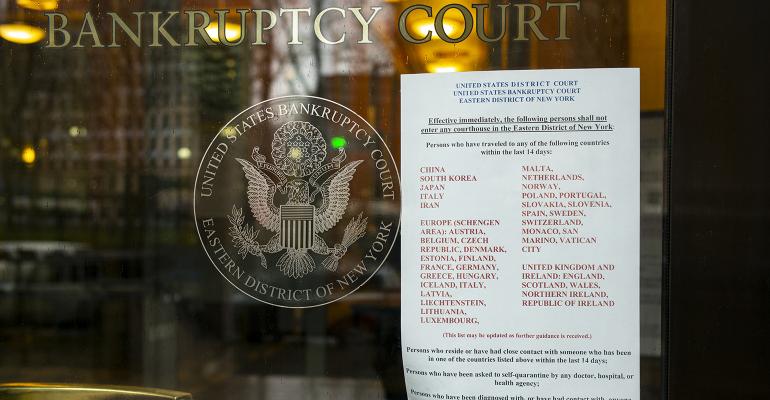Limitations Period to File Claims
The closure of nearly all superior courts in California and limitations on court filings have raised a practical issue for parties: how can we protect our rights during the COVID-19 crisis? Despite the closures, there remain steps that parties may still take steps to protect themselves and their claims.
Certain statutes of limitations continue to run. For instance, upon receiving a Notification by Trustee under Probate Code section 16061.7, a person has 120 days to file a contest of the trust. If a person does not file an action before the expiration of the applicable statute of limitations, the claim could be barred. The court closures do not extend this deadline. Some courts declared the dates on which they are closed “court holidays,” which extends the deadline to file until the next day on which the courts are open. A party has three options if the deadline to file expires in the coming weeks:
- If your action is in a county that still accepts filings, you must file within the deadline.
- If your action is in a county that does not accept filings, you must prepare the filing so it can be filed on the first day courts are open.
- If you are concerned, file the action in another county. While the Probate Code specifies the venue (county) in which an action should be brought, any court in California possesses jurisdiction. By filing the petition, the litigant can ensure that the statute of limitations is not missed. The parties can then deal with any transfers to another county after the fact.
It is possible that this third option could give rise to liability for another party’s attorney’s fees and costs if that party prevails on a motion to transfer venue, but those expenses pale in comparison to the lost claim if the statute of limitations expires.
Progressing Litigation
Even though the courts limited filings and all but eliminated hearings in trust and estate litigation, pending cases can still continue. Parties to pending lawsuits can progress their matters through discovery. Discovery is the process through which parties obtain information and evidence to put on their case. It is designed to take place outside the supervision of the courts.
Written discovery (such as interrogatories, requests for admissions, and demands for inspections of documents) proceeds as usual. Pursuing written discovery while the courts remain unavailable allows for faster response times and fewer delays. Without the myriad obligations of ongoing hearings and filing deadlines, parties and attorneys can focus on timely responding to discovery requests. Remember that most of the orders extending filing deadlines limit those extensions to filings. For instance, the most recent order issued in Contra Costa County (on April 2) limits the extension to "computing the time for filing papers with the Court." Since discovery responses are not filed with the court, those deadlines remain unchanged, and the failure to timely respond can result in a waiver of objections.
Oral discovery (such as depositions) may still proceed but requires additional considerations. Due to the requirement of physical distancing, parties can leverage remote technology, such as video conferences, to accomplish depositions. Governor Gavin Newsom’s March 27 order suspended statutes that required in-person attendance at depositions. If courts begin adopting local rules permitting remote depositions, the examinations may proceed as a matter of right. Even without that order, the parties may stipulate to a remote deposition through video technology such as Zoom. This agreement would allow the attorneys, parties, and court reporter to participate from separate locations.
The ongoing pandemic does not diminish the importance of pending lawsuits to the participants. Through the creative use of technology and ongoing forward planning, lawsuits can continue to progress despite the courts' closures.
Andrew R. Verriere is a Principal at Hartog, Baer & Hand APC. He can be reached at [email protected].





